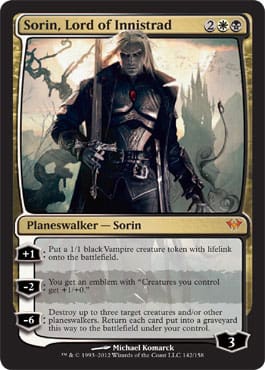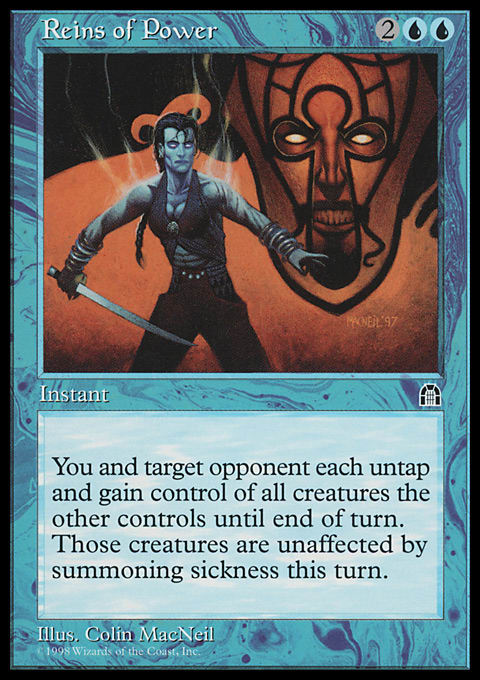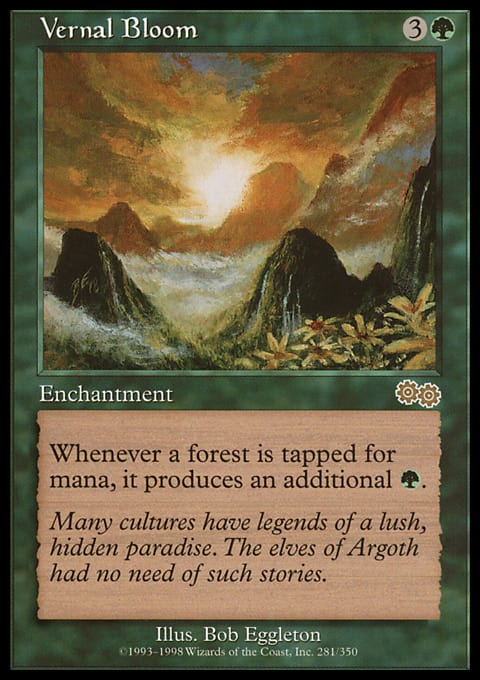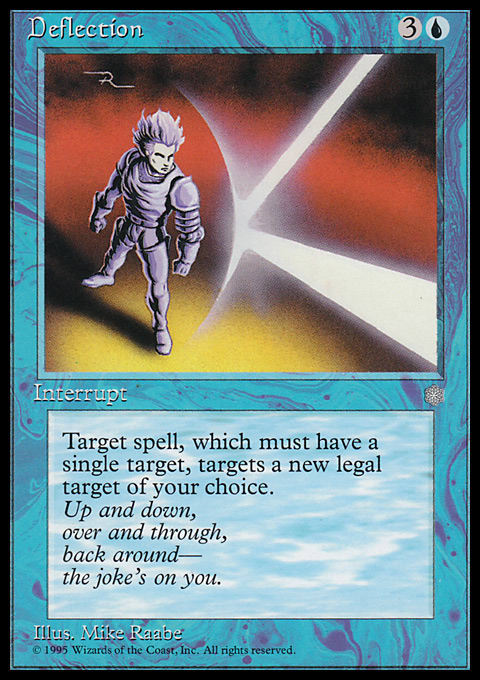Last week, I talked about passing the buck: the ancient art of hoping someone else will take care of your problems for you. Today, I want to stay on the same general theme but with a crucially different strategy: defection. Not the kind that involves James Bond and Russian gymnasts, but exciting enough for those of us trying to win our multiplayer games. The idea of defection in a free-for-all is a little harder to pin down than buck passing, but it can be a much more effective and reliable strategy that gives you significant control over your opponents in the right situation.
And it all starts with a little something called the Stag Hunt.
The Stag Hunt
This is a common, centuries-old metaphor in game theory. Imagine that the townsfolk of a small medieval village have come together to hunt a stag—a huge beast big enough to feed the entire village. If they get the stag, everyone dines heartily; if they fail, they have to start sizing up the kids. In other words, everyone succeeds or fails together . . .
. . . Except that one villager spies a tasty-looking cat1 in the woods and realizes that it is just big enough to feed his family. He now has a dilemma: Go after the cat, ensuring his survival but sabotaging the hunt and possibly dooming the rest of the village to starvation, or join the rest of the village in trying to kill a stag. The former is less desirable but has a higher probability of succeeding, while the latter is a better outcome for everyone but is less certain.
In more general terms, the Stag Hunt illustrates the dilemma of defecting: Do you choose the higher probability of surviving on your own or the lower probability of surviving as a group?
Let’s put that model into a Magic context. Imagine a four-player game in which the player to your left is rocking W/B tokens and has a Sorin, Lord of Innistrad on 6 loyalty. The two players to Sorin’s left have both swung with everything in an effort to take Sorin out, but they were only able to take out his blockers. It’s up to you now. If you swing with everything (as the two players who swung at Sorin no doubt expect you to), you can do enough damage to kill Sorin. What do you do, and what are the variables?
The first thing to recognize is the implicit threat assessment of the rest of the group. Your first opponent swung at Sorin even though he knew he couldn’t get through the wall of tokens, which was clearly a signal that he thought Sorin was The Threat.2 The second player went along with that, and his action (attacking Sorin to whittle down his blockers and leave him open to you) only makes sense if he thought you would join in and finish off Sorin. They definitely expect you to share their threat assessment and join them in balancing against Sorin. That provides just enough of a group feel to make the Stag Hunt metaphor appropriate.
You basically have three options:
- Dogpile – This is where you go all-in on eliminating The Threat. Of course, once you eliminate The Threat, everyone will have to reassess their threat environment, and someone might decide the biggest threat is you. It may be worth taking your chances if the current threat is too strong, but you need to understand that removing The Threat can actually put you in a less safe position.
- Apathy – Do nothing to deal with The Threat. Either pass the turn or go after someone else—maybe even one of the players who tapped out to go after Sorin! This is classic buck passing, but in this case, it probably isn’t a good strategy: The odds that either of your temporary allies has an answer seem to be low, and if you don’t do something right now, Sorin is going to go off.
- Blood in the Water – This is kind of a half measure—you take a poke at Sorin to stop him from going off, but you don’t eliminate him, forcing everyone else to continue expending resources on him. That way, you get the advantage of one weakened opponent (Sorin will have to start rebuilding his forces and building up counters again) and one or two distracted opponents who know they’ll have to continue keeping an eye on Sorin even if they don’t try to take him out again.
Sometimes, it can be as simple as a single card. Imagine in the Sorin example everyone has a Titan and nothing else, and if Sorin goes off, you might be facing down a trio of Titans on an otherwise empty board. But if you have a Reins of Power in hand, you’d love to see those creatures in the hands of a single player—so that you can steal them all and take someone out.
I once won a game solely on the basis of a Word of Seizing and a defection strategy—the strongest player was ramping up Elspeth, Knight-Errant, and nobody else could stop her. I could have taken her out in one swing with my commander, Akroma, but I didn’t join in the dogpiling. When I was asked why, I said that Akroma didn’t care about indestructible ground-pounders. So I just bashed a different player each turn while the G/W mage put everything into defending Elpeth, and everyone else threw all of their attackers at her. The truth was, though, that I couldn't wait for Elspeth to get up to 8 counters so that I could steal her and make my Akroma indestructible.
Defection also works in other situations where you aren’t as scared of a threat as the rest of the table. In addition to single-card answers, defection can work if your strategy gives you an edge over other players or if you know that other players are better targets for The Threat than you. In the Sorin example, things would have been different if you’d had the weakest creatures while another player had three Primeval Titans; there’s no way you would be the target of Sorin’s ultimate, so why not let him go off and weaken another opponent? Or maybe one opponent is on a ton of life, so even if Sorin takes one of your fatties, you can rest assured that it will be used to beat down Captain Congregate and not you. In a lot of situations, The Threat may be a lot more threatening to someone else than it is to you, so you should let that person do more of the heavy lifting in dealing with that threat.
As an example of a strategy-driven defection, I once wrote an entire article, Game Theory, Not Politics, on using defection to make a game go my way. In that case, I had a combination of cards that told me I wanted to be playing a long game, I had two opponents I didn’t want to focus on me, and a third opponent who seemed to be The Threat to all of us. So, I pretended to go along with the dogpiling, but only half-heartedly. I was able to keep The Threat alive and my other opponents distracted and weak long enough to take over and wipe out everyone. No tricks, no bargains, just a solid understanding of my opponents’ threat assessment and how I could use it against them.
Sidebar: Strategy and Politics
Politics can be a factor in multiplayer to varying degrees. They have played little to no role in any of my games in Korea so far, although there were a few amateur politicians in my playgroup in Japan and a few games were decided by late-night deal-making. However, the most important thing to remember is that buck passing and defection are primarily strategic, meaning that you can employ these strategies without exchanging a word with any other players. All that matters is that you can figure out what cards, players, and so on, are most threatening to your opponents.
After all, do you really need to be told that the Slivers deck—or the Zur deck or the blazing-fast Azusa deck—is going to be a cause of concern for your opponents? If Mike won last week’s games with a three-card combo and he’s just cast Conflux, can't you assume that everyone else will be worried about a repeat performance? If the green player just dropped Vernal Bloom and Caged Sun, are you likely to be the only one who can predict a Genesis Wave or Primal Surge? Of course not. Observing the board state and assessing the threats to each player are at the heart of multiplayer strategy, and if you can do that, you can use strategies like buck passing, defection, and of course balancing to your advantage.
Politics can affect these strategies in different ways, though. First, low politics (the emphasis of known information) can shape threat perceptions or betray your own concerns. For example, if you keep telling everyone how many counters are on Sorin, I know you’re likely to try to take him out. In the game I wrote about on the Muse Vessel, my strategy began to take shape as two of my other opponents began talking about how powerful Slivers can be. Also, watching how people react when you say, “Wow, Mana Reflection is pretty dangerous; I hope someone has enchantment removal,” can suggest how successful a buck-passing strategy will be.
Second, high politics (the manipulation of hidden information)3 can make buck passing a cinch, but it does complicate defection. If you ask someone point blank if he can handle a threat and he shows you the card in his hand (revealing hidden information), you can pass the buck to him much more easily. You can even tell him you won’t attack him in exchange for him dealing with a threat (revealing your future intentions, which had previously been hidden).
When it comes to defection, though, your best bet is to let other players make alliances (revealing information about their interests and intentions) and play along without making any promises yourself. Remember that the first rule of politics is that you don’t need it, but the second rule is that if you make a promise, you’d better keep it. Defecting from an agreement you’ve made is the first step down a long, dark road that you don’t want to go down. Don’t make promises unless you absolutely have to, and gain as much information as you can from other people’s attempts to make deals.
Conclusion
Passing the buck and defection are important tools for any multiplayer mage. Knowing when your opponents will deal with threats for you—and when you can keep them busy by leaving a threat on the board because it doesn’t threaten you—will make you multiplayer games a lot less stressful and a lot more successful. As I said last week, your opponents can be a valuable resource if you understand what their concerns are. Remember that it all starts with good threat assessment, and that what threatens you may or may not threaten everyone else (and vice versa).
1 Rousseau’s Stag Hunt involved a hare rather than a cat, but bunnies are cute and cats are evil, so we’ll stay with a cat for this one. All that matters is that it’s a wee bony thing that is nowhere as tasty as a stag.
2 “The Threat” means the biggest threat to everyone at the table, as opposed to a threat to one or more players or one threat among many at the table. Not every game sees a player emerge as The Threat, but when this does happen, the rest of the table usually balances against them. Of course, it’s easy to leave yourself open to one opponent because you think another opponent is The Threat to both of you and then be blindsided because that player is worried about you, but we’ll get to that later.
3 You can find the links to my series defining politics here. It was supposed to be one article, but the topic took a lot longer to cover than I expected. I know it’s a difficult read, but it is the only in-depth treatment of the subject. Whether I’m right or wrong about it, I think it is important to read it—if only so that you can tell the tournament player to shut up when he complains about how politics ruins multiplayer.



























